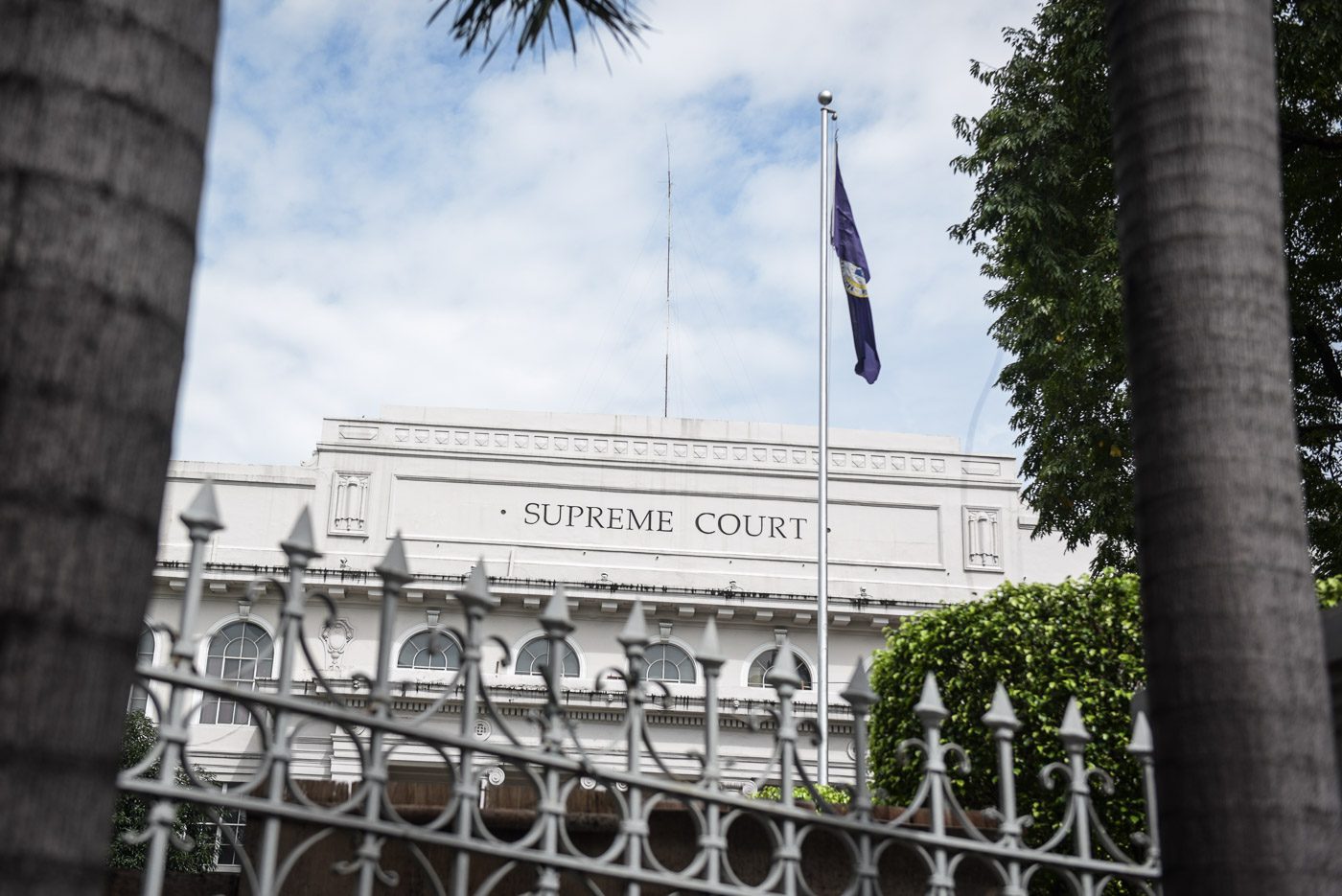SUMMARY
This is AI generated summarization, which may have errors. For context, always refer to the full article.

MANILA, Philippines (UPDATED) – The Supreme Court (SC) has increased the damages imposed on broadcast journalist Raffy Tulfo and the publisher and editors of Abante Tonite over a libel case that stemmed from a column he wrote in 2003.
The SC 3rd Division more than doubled the damages that Tulfo and the Abante Tonite publisher and editors have to pay – from P700,000 to P1.71 million.
“Respondents Raffy Tulfo, Allen Macasaet, Nicolas V. Quijano Jr, Janet Bay, Jesus P. Galang, Randy Hagos, Jeany Lacorte, and Venus Tandoc are ORDERED to solidarily pay petitioner Michael C. Guy: ( 1) Five Hundred Thousand Pesos (P500,000.00) as moral damages; (2) One Million Pesos (Pl,000,000.00) as exemplary damages; and (3) Two Hundred Eleven Thousand Two Hundred Pesos (P211,200.00) as attorney’s fees,” said the decision of the SC 3rd Division promulgated on April 10, but just recently made public.
The libel case stemmed from a column that Tulfo wrote for Abante Tonite in 2003, where he accused businessman Michael Guy of seeking help from a government official for an alleged tax fraud investigation.
The SC affirmed the Court of Appeals or CA’s finding of guilt against the respondents and increased the damages, which the appellate court previously set at P500,000 worth of moral damages and P211,200 worth of attorneys fees.
The High Court did not impose prison time.
Under the Revised Penal Code, libel is punished with jail time of up to 6 years but when the Makati Regional Trial Court ruled against Tulfo and his editors in 2010, it imposed damages and only a “subsidiary imprisonment in case of insolvency.”
Subsidiary imprisonment significantly reduces the prison time, depending on the situation. However, when the case was elevated to the CA, the appellate court removed imprisonment altogether.
The SC also denied the appeal of the complainant to be paid P5 million in damages.
“His allegation of possibly earning P50,000,000.00 in 10 years is a mere assumption without any foundation. This bare allegation is insufficient to prove that he has indeed lost P5,000,000.00 as earnings,” said the decision penned by Associate Justice Marvic Leonen, with concurrences from Associate Justices Diosdado Peralta, Andres Reyes Jr, Ramon Paul Hernando, and Rosmari Carandang.
Unverified allegations
Guy sued Tulfo over the latter’s “Shoot to Kill” column published in Abante Tonite in October 2003.
The businessman won the libel cases before the lower court and the CA, but his repeated claims for P5 million in damages were denied.
In his column, Tulfo alleged that Guy sought the help of then-finance secretary Juanita Amatong as he was supposedly being investigated for tax fraud. Tulfo further alleged that Amatong had called the Revenue Integrity Protection Service and asked that all documents related to Guy be surrendered to her.
The High Court found that Tulfo and Abante Tonite “published the libelous article without verifying the truth of the allegations against petitioner.”
“As the Court of Appeals found, the Revenue Integrity Protection Service only investigates officials of the Department of Finance and its attached agencies who are accused of corruption. Petitioner, on the other hand, is no government official and, therefore, beyond the Revenue Integrity Protection Service’s jurisdiction. It only goes to show that respondents did not verify the information on which the article was based,” said the SC..
Warning to press
In the decision, the SC warned the press to strictly follow the Code of Ethics in its reporting.
“The protection afforded by the Constitution to the press is not carte blanche that allows journalists to abandon their responsibility for truth and transparency. It is incumbent upon them to exercise a high degree of professionalism in their work, regardless of rhe subject of their stories,” the SC said.
“As such, journalists should observe high standards expected from their profession. They must take responsibility for the accuracy of their work, careful never to deliberately distort facts or context by verifying information before releasing it for public consumption,” it added.
The HIgh Court highlighted the need for responsible journalism in the age of social media.
“This Court can only hope that respondents appreciate the privilege their fame has brought them and, in the future, become more circumspect in the exercise of their profession,” the Court said. – Rappler.com
Add a comment
How does this make you feel?





There are no comments yet. Add your comment to start the conversation.